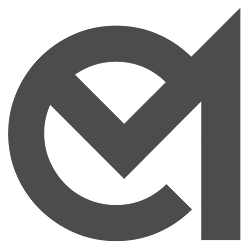What Are Co-Occurring Disorders, and Which Are the Most Common?

According to the National Institute on Drug Abuse (NIDA), each year, almost 9 million adults in the United States struggle with substance abuse and mental health conditions. Over 50% of these people will never receive treatment. And less than 10% will go through an integrated and well-rounded treatment plan that addresses both issues and how they exacerbate each other.
Clinically, substance use disorders alongside mental health disorders are called co-occurring disorders. When co-occurring disorders are left untreated, they feed off and complicate each other, symptoms can worsen, and the risk of overdose, chronic diseases, and suicide increases.
Mental illness can cause people to self-medicate with drugs; sometimes, mental health issues develop due to substance abuse. The symptoms of mental health issues and drug abuse often seem similar, which leads to misdiagnoses and people not receiving treatment for mental health issues.
Healthcare professionals don’t understand all the factors contributing to co-occurring disorders, but they have identified some of the most common conditions and how they impact each other. Ultimately, it doesn’t matter what caused what or came first; the critical point is successfully treating both problems in a way that leads to life-long recovery.
What Is a Co-Occurring Disorder?
Each condition is a co-occurring disorder when a person has a diagnosed substance use disorder and one or more mental health disorders. This means they impact daily life, sometimes exacerbating each other; one doesn’t overrule or replace the other. They are happening simultaneously.
Some treatment professionals use the term comorbidity in place of co-occurring disorders, but this term is falling out of use because of the negative connotations.
Previous psychology and medical professionals believed that one issue caused all the others, and treating someone’s substance abuse would cure their depression, or vice versa. Although, as knowledge evolved and addiction became recognized as a disease rather than a character flaw, experts realized that humans are complex and often have multiple contributing disorders requiring treatment.
The National Survey on Drug Use and Health conducted by the Substance Abuse and Mental Health Services Administration (SAMHSA) in 2018 estimated that 9.2 million adults in the United States have co-occurring disorders.
No specific combination of disorders or diagnoses define co-occurring disorders; however, some recurring mental health disorders frequently accompany substance use disorders.

What Are the Most Common Co-Occurring Disorders?
Health experts use the Diagnostic and Statistical Manual of Mental Health Disorders (DSM), currently in its fifth edition, to assess, recognize, and recommend treatment for patients. The DSM-5 acknowledges over 300 personality disorders, but researchers have identified specific ones as the most common in conjunction with substance use disorders.
Anxiety Disorders
Anxiety disorders include generalized anxiety disorder (GAD), obsessive-compulsive disorder (OCD), social anxiety, and panic disorders. Many people self-medicate with alcohol or other downers to calm their symptoms.
Personality Disorders
Personality disorders include borderline personality disorder (BDP), schizophrenia, anti-social personality disorder, avoidant personality disorder, and paranoid personality disorder. Most people with these diagnoses tend to have substance use disorders involving illicit drugs. Researchers hypothesize that the same brain chemistry that makes people prone to these disorders leads to a higher risk of addiction.
Attention Deficit Hyperactivity Disorder (ADHD)
ADHD leads to impulsive decisions and a higher tendency toward thrill-seeking behavior, including substance abuse. Many people diagnosed with ADHD and a substance use disorder began their addiction by abusing their prescription medications and progressing to more potent or mixing medications.
Mood Disorders
Mood disorders include people who have bipolar disorder, major depressive disorder, persistent depressive disorder, disruptive mood dysregulation disorder, and mania disorders.
20% of people who undergo dual-diagnosis will be diagnosed with one or more mood disorders. The symptoms of substance abuse and mood disorders are often very similar and more severe than if only one condition were present.
Post-Traumatic Stress Disorder (PTSD)
PTSD is a specific anxiety disorder that develops in people who have experienced traumatic events. While it is mainly associated with veterans, 3.5% of all adults in the United States have PTSD. People diagnosed with PTSD are up to fourteen times more likely to have a co-occurring substance use disorder than people without PTSD.
Eating Disorders
Eating disorders include anorexia, bulimia, orthorexia, and binge disorders. People diagnosed with eating disorders frequently have co-occurring mood or personality disorders and substance use disorders. Stimulant use and uppers are the most commonly abused drug for people with eating disorders for their appetite-suppressing side effects.
The disorders mentioned above are not a complete list, and only a medical professional can make an official diagnosis of mental health disorders. If you have been diagnosed with any mental health issue, it is important to disclose that to your treatment team so they can confirm the diagnosis and screen for others.

What Is Dual Diagnosis?
Dual diagnosis is the clinical term for having two or more diagnosed co-occurring disorders. It also refers to diagnosing and identifying the different disorders. Co-occurring conditions refer to specific illnesses the person has. The purpose of dual diagnosis is to determine the co-occurring conditions and the best treatment approach that addresses all of them.
Dual diagnosis does not require or depend on any specific combination of co-occurring mental disorders or substance use disorders. Some people could have one mental health condition and multiple substance use disorders, and some could have various mental health disorders and only be addicted to one substance.
Co-Occurring Disorders Treatment
Properly treating co-occurring disorders requires addressing the substance use disorder, the mental health disorder, and how they interacted and affected the patient. All co-occurring disorders are given equal importance and treated simultaneously, rather than prioritizing one over the other. This approach is called integrated treatment.
Not every treatment center is equipped to diagnose and treat co-occurring disorders. Northridge Addiction Treatment Center has a multidisciplinary staff specializing in evidence-based, personalized treatment plans for co-occurring disorders.
Treating co-occurring disorders involves medication-assisted treatment when necessary and multiple therapies. Therapy is often associated with sitting in an office and talking to someone with a notepad, but there are many forms of therapies with specific purposes and different approaches.
Some of the evidence-based therapies used to treat co-occurring disorders include:
Cognitive Behavioral Therapy (CBT)
Cognitive-behavioral therapy helps identify harmful and damaging thoughts to change and reframe them into healthy habits and coping strategies. Recognizing and disrupting negative thoughts and patterns is essential for overcoming self-sabotaging behaviors.
Dialectical Behavior Therapy (DBT)
Dialectical behavior therapy is a detailed and structured cognitive-behavioral therapy. This form of therapy helps identify and accept the difficulties of living with addiction and mental health disorders and focuses on how to overcome them in daily life. Core focuses of DBT include reducing self-harm behaviors, learning how to regulate emotions, developing interpersonal skills and communication, and managing crises safely without relapsing.
12 Step Facilitation Therapy (TSF)
12-step facilitation therapy and support groups help develop a sense of community with a common goal. Realizing that you are not alone and receiving outside support and validation helps build confidence, accountability, and self-esteem.
Medication-Assisted Treatment (MAT)
Medication-assisted treatment uses FDA-approved, non-addictive medications to manage and correct chemical imbalances caused by co-occurring disorders. Short-term, MAT can help treat unpleasant substance withdrawal symptoms.

Integrated Treatment at Northridge Addiction Treatment Center
The best way to address co-occurring disorders is with an integrated, inpatient treatment program. Integrated treatment refers to the treatment approach of recognizing mental health disorders and substance use disorders as separate but intertwined conditions and treating them with equal importance and urgency.
SAMHSA links integrated treatment programs with higher long-term successful outcomes and a better quality of life for patients.
At Northridge Addiction Treatment Center, we pride ourselves on our licensed and accredited facility, multidisciplinary team, and our integrated treatment for co-occurring disorders. We offer evidence-based therapies in a supportive, family environment that removes you from triggers while learning to manage your mental health and substance use in healthy, productive ways.
Our residential treatment facility has a close staff to resident ratio to provide one-on-one attention and support. With comfortable amenities like flat-screen TVs, wireless internet, catered gourmet meals, and a hot tub and pool area, we believe that relaxation, peace, and fun are vital while you start on your path to recovery.
Reach out to our treatment specialists today. We are eager to help you reclaim your life with effective, meaningful treatment for your lasting recovery.
Find Meaningful Recovery
Our caring and compassionate specialists are eager to help you comfortably navigate this journey to recovery. Our individualized treatment plan, programs, and therapies may be a perfect match for you or your loved one. Let us assist you in living the happy life you deserve. It starts with a phone call.




